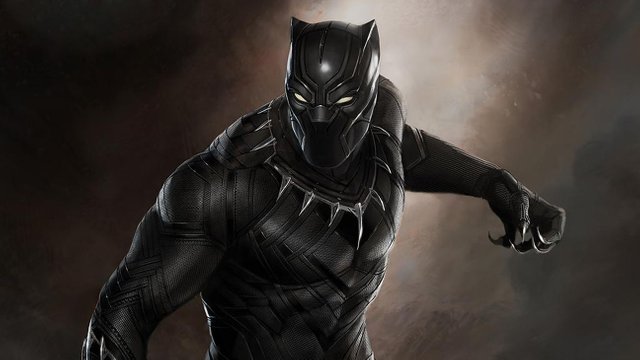Black Panther: The semiotics of its music | SPOILERS

Sup Cutiecats!
As you could all very well imagine, I just saw Black Panther. But I didn’t just already watch it, I literally arrived from the cinema like 10 minutes ago, changed into my warm pj’s and fuzzy socks, grabbed my laptop and started writing this post.
To say I liked the movie would be completely overstated and I do not think it necessary to tell you all that if you haven’t seen it then WHAT THE F*CK ARE YOU DOING SITTING THERE? GET UP, MOVE! No, but really, it’s not just another good superhero movie like many Marvel ones, it also has everything you could expect from a great film: good storyline and plot, nice character development, better villains and excellent music. The music…
Kendrick Lamar and Ludwig Goransson

First, I have to mention that the whole lyrical album (that is to say, not the musical score) was produced and curated by Kendrick Lamar. The singer participates in most of the songs alongside other rappers and singers like SZA, The Weekend, 2 Chainz and Jorja Smith. The album was a success on the Billboard lists according to CNN. I was pleasantly surprised to see something like this, given that I don’t remember Disney assigning a soundtrack to a singer since Daft Punk with Tron: Legacy (2010), and before that Elton John and Phil Collins with The Lion King (1994) and Tarzan (1999) respectively.
As a second album, we have Ludwig Goransson, who composed the musical score: the instrumental music for Black Panther. Honestly, I’d never heard of this guy before, and I’m kind of a soundtrack nerd. This score is thebombdotcom because it goes really well with the movie’s African theme. You can hear lots of drum sounds, rhythms and African choirs that convey visceral strength.
Rap vs Instrumental

The thing is, talking about those two albums separately doesn’t make much sense, even though each one stands tall on its own. You see, in the movie they are intertwined to achieve the perfect balance between rap and instrumental music.
That’s not the only interesting part though, it was more so the way they decided to mix them. The film starts with Wakanda Origins by Goransson, and from there you can already feel that “tribe” feel that they want you to feel. From that point on you can see that every time the characters are in Wakanda, the drums and African voices start playing. On the other hand, when they show cities like California or Seoul, or American born characters like Killmonger, you can hear rap songs all the way.
This allows for a nice deepness to the characters and places of the story; when they are in Africa and King T’Challa is speaking, they really want to submerge you there, and when black people are talking or doing business in America, rap is the real King. The transitions are so smooth that coming out of the trance and realizing the genius musicalization is no easy task.
A worthy death

Like I told you before, I love the fact that when you see Wakandan characters (the King, Nakia, Okoye or W’Kabi) drums come into play, meanwhile, if the rest are in scene (Killmonger, Ulysses Klau) the rapping starts. Specifically Erik Killmonger steals two or three rap songs for his scenes, and that’s because he is the African king’s antagonist, so this union goes according to his role. This villain was never given glorious drums, even when he is also Wakandan and is fighting for that same birthright. I like that even the music denies him his most desired wish.
Except in his death.
His father told him that the sunsets in Wakanda were the most beautiful in the world, and T’Challa, as a good hero does, takes the agonizing villain to the top of the mountain so he can see his father’s description in his dying moments. When the King asks him if he wants to be cured, the villain, in the most socially critical moment of all the film, rejects the offer whilst saying that he would prefer going as his ancestors did (black slaves taken to America during the Colonies) “jumping off the ships and into the sea, rather than facing a life of slavery.”
When Erik dies, finally the tribal African music plays, as if to say “at least you had a death worthy of a Wakandan, here is your parting music. You deserve it.”

The moment I left that movie theater I knew I wanted to do a semiotics analysis for this movie’s music. And you, what did you guys think about Black Panther? Did you pay attention to any other details? Tell me your opinion in the comments, I’d love to read what you thought!
xoxo